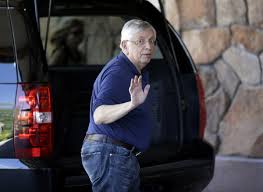 As it was in the beginning, so it will be in the end, an NBA without David Stern, amen.
As it was in the beginning, so it will be in the end, an NBA without David Stern, amen.
It’s true. There is going to be an NBA without its commissioner of the last 30 years, who’s handing over his axe, er, stepping down in favor of Deputy Commissioner Adam Silver on Feb. 1.
It just won’t seem like the NBA, though.
Not that the league won’t continue on its merry way. The stars will still be stars. The league will continue to fine anyone for any protest stronger than an eye roll.
Without Stern, the NBA would still have its lore (Mikan’s horn rims, Wilt’s tank tops, Russell’s goatee, Red’s cigars, West’s 60-foot shot, Willis limping out). There would have been a revival in the ‘80s with Magic Johnson and Larry Bird and a heyday in the ‘90s with Michael Jordan.
Nevertheless, the NBA wouldn’t be close to what it is now.
Jordan’s departure, ending the Bulls’ dynasty in 1998, was the beginning of a Perfect Storm. The Eastern Conference all but went out of business (the West won the next five by a combined 20-6). TV ratings cratered, not only in the Finals but the regular season when Tiger Woods and NASCAR took over Sundays. The stock market tanked.
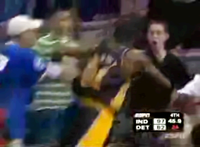 Players partied on with enough incidents in clubs (like Indiana’s Stephen Jackson, breaking up a fight by firing his pistol in the air) to make it look like Dodge City, with Stern as Wyatt Earp, culminating in the the Auburn Hills Riot in 2004.
Players partied on with enough incidents in clubs (like Indiana’s Stephen Jackson, breaking up a fight by firing his pistol in the air) to make it look like Dodge City, with Stern as Wyatt Earp, culminating in the the Auburn Hills Riot in 2004.
That seemed as low as a league could go… until referee Tim Donaghy pleaded guilty to selling information to gamblers, denying that he actually fixed games but claiming that the NBA and his fellow officials did that. Donaghy even specified the Game 6 of the 2002 West Finals when a huge free throw disparity helped the Lakers beat the Kings, forcing a seventh game in Sacramento, which the NBA’s marquee team won (It is known in NoCal as the Ralph Nader game).
Through it all, one silver-haired little titan never faltered, holding his league together and his financing in line, hopping from one network (CBS) to another (NBC) to a third (ABC) when it became necessary to fend off the ultimate nightmare, the first cut in right fees the NBA (or the NFL or MLB) would have ever had to take.
As a consequence, ka-ching! –the NBA went from $150 million a year in 1994 to $437 million in 1998, the last contract with NBC… to $767 million in 2002 when Stern refused the Peacock’s offer of a cut and took the package to cable with ABC but mostly ESPN and Turner… to $930 million in a 2007 extension… to what’s expected to be a bonanza in the next deal with the contract expiring next season.
Of course, the league looks a little different. Referees ‘T’ up players for mild protests and eject them for what were once mild hard fouls but are now “flagrant twos.”
On the current NBA scale, John Starks’ mid-air tackle of Scottie Pippen in the 1992 East Finals would have been a “flagrant 50.” In 1992, the penalty was two free throws.
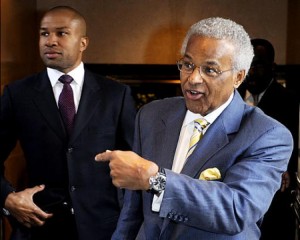 Other league initiatives aimed at a more gentlemanly image, like the 2005 dress code, went up in screams and smoke. Stern had union head Billy Hunter, a natty dresser, on board. Unfortunately, Hunter’s membership went apoplectic en masse at the new rule barring accessories like sunglasses and (you may not want to let your kids read this part) headphones! Like any parent, Stern wound up looking the other way a lot.
Other league initiatives aimed at a more gentlemanly image, like the 2005 dress code, went up in screams and smoke. Stern had union head Billy Hunter, a natty dresser, on board. Unfortunately, Hunter’s membership went apoplectic en masse at the new rule barring accessories like sunglasses and (you may not want to let your kids read this part) headphones! Like any parent, Stern wound up looking the other way a lot.
Of course, that was the season after the Auburn Hills riot. Only Stern knows exactly how horrified his big-ticket sponsors were by the sight of NBA players laying out their fans, as in unforgettable video showing Indiana’s 6-11 Jermaine O’Neal cold-cocking an ordinary-size fan who ran up to him on the floor.
After that, there wasn’t just zero tolerance for fighting, but anything that looked like, or might lead to a fight, like joining a confrontation or making a fist.
Unfortunately, this left room for miscarriages of justice, as in the second-round series in 2007 when San Antonio’s Robert Horry checked Phoenix’s Steve Nash into the scorer’s table, starting a melee in which Amare Stoudemire and Boris Diaw wandered off the Suns’ bench and were suspended for a game.
Without Amare, the Suns, who had just tied the series 2-2 in San Antonio, lost Game 5 in Phoenix, got Amare back but were put out of their misery in Game 6 in San Antonio.
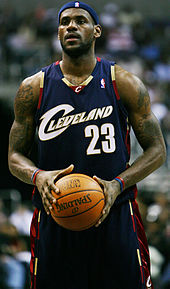 Among the casualties was the entire postseason. The Spurs easily handled a young Utah Jazz team, 4-1, then swept a young Cavaliers team, 4-0, while drawing an all-time low 6.3 Finals rating.
Among the casualties was the entire postseason. The Spurs easily handled a young Utah Jazz team, 4-1, then swept a young Cavaliers team, 4-0, while drawing an all-time low 6.3 Finals rating.
So, while giving him credit for holding the line, people like me criticized Stern for this and that, but he gave as well as received. Zinging him in the newspaper was one thing. It was another to publicly take on a former litigating lawyer who could stop a Congressional inquiry dead in its tracks.
Despite the absence of evidence suggesting performance enhancing drugs were a problem for the NBA (partying yes, PEDs no), Stern was hauled before a House committee looking into into steroid abuse in baseball in 2005.
Rep. Stephen F. Lynch, a Democrat from Massachusetts, asked why the Pistons and Pacers hadn’t been tested after their rumble, “given the connection between aggressive behavior and steroid use…
“You don’t know, said Lynch. “You don’t test the players.”
In an icy rebuke, Stern noted, “It worries me greatly if the absence of testing for any body–including the members of Congress–would somehow be used to say, ‘Well, if you don’t have it, that’s proof that it must exist,’ and then referring to a policy as pathetic.
“On behalf of the players of the National Basketball Association, I would like to say that the guilt you seek to attribute to them on the basis of this policy is ill-taken and very unfair.”
I took on the little colossus myself once or twice in press conference, whether from duty, foolishness or my own psychological issues.
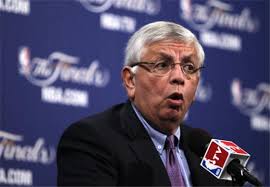 With Stern defensive about the inevitable gambling questions at the 2007 All-Star Game in Las Vegas, I blundered well past ‘inevitable,’ asking a question, citing “anecdotal evidence” about players with gambling issues.
With Stern defensive about the inevitable gambling questions at the 2007 All-Star Game in Las Vegas, I blundered well past ‘inevitable,’ asking a question, citing “anecdotal evidence” about players with gambling issues.
As if carving “DS” into my shirt, Stern asked if I was prepared to name names.
No, I said, sheepishly.
I can’t remember what he said but it wasn’t, “Of course, I understand that free inquiry is one of the underpinnings of our democracy.”
Happily for me, Stern had also run over the first two guys, who asked questions on different subjects that he deemed inconvenient. In the next day’s paper, I noted the difference between ordinary press conferences, in which the host answered questions, and the NBA’s, in which Stern told us what was wrong with our questions.
My phone rang at home in the San Fernando Valley the next morning. It was Stern, already back in New York, calling to apologize. I told him I took it as part of the biz. It was really like facing Nolan Ryan and actually putting your bat on a pitch.
Whether you loved him, hated him, respected him or lived in fear of angering him, if you played, worked in or followed the NBA, you have him to thank.
For people like me, you have him to remember and to miss.
CHECK OUT MARK HEISLER’S COLUMN ARCHIVE
Hall of Fame writer Mark Heisler is a regular contributor to SheridanHoops, the Orange County Register and Forbes.com. Follow him on Twitter.
David was the best commissioner in nba history he made millionaires out dam near everybody that ever played ,coached in his league many times over for 30 years he was lord &master &whom ever was under his tutelage ate like kings as he once said to somebody who was ungrateful to be in his league.